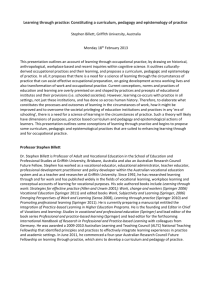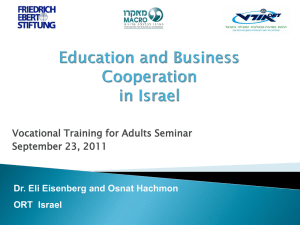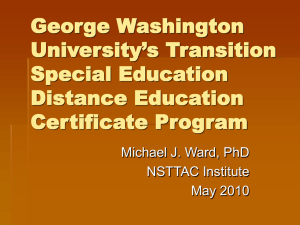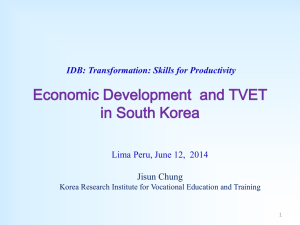Billetgt_Oslo Vocational education_2013
advertisement
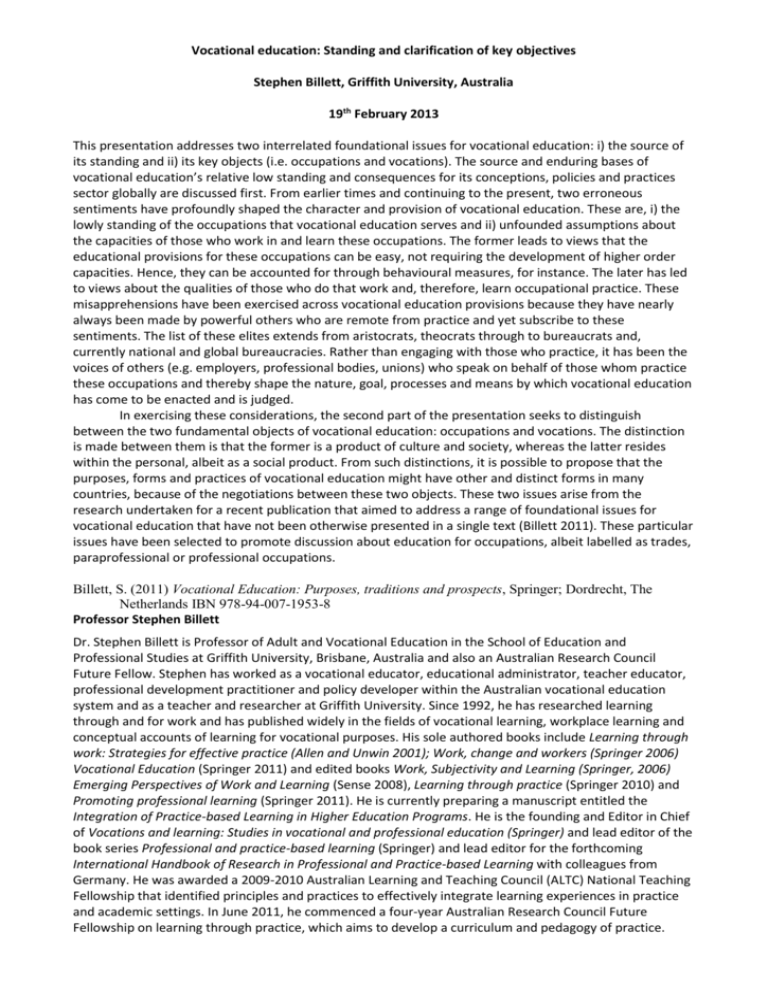
Vocational education: Standing and clarification of key objectives Stephen Billett, Griffith University, Australia 19th February 2013 This presentation addresses two interrelated foundational issues for vocational education: i) the source of its standing and ii) its key objects (i.e. occupations and vocations). The source and enduring bases of vocational education’s relative low standing and consequences for its conceptions, policies and practices sector globally are discussed first. From earlier times and continuing to the present, two erroneous sentiments have profoundly shaped the character and provision of vocational education. These are, i) the lowly standing of the occupations that vocational education serves and ii) unfounded assumptions about the capacities of those who work in and learn these occupations. The former leads to views that the educational provisions for these occupations can be easy, not requiring the development of higher order capacities. Hence, they can be accounted for through behavioural measures, for instance. The later has led to views about the qualities of those who do that work and, therefore, learn occupational practice. These misapprehensions have been exercised across vocational education provisions because they have nearly always been made by powerful others who are remote from practice and yet subscribe to these sentiments. The list of these elites extends from aristocrats, theocrats through to bureaucrats and, currently national and global bureaucracies. Rather than engaging with those who practice, it has been the voices of others (e.g. employers, professional bodies, unions) who speak on behalf of those whom practice these occupations and thereby shape the nature, goal, processes and means by which vocational education has come to be enacted and is judged. In exercising these considerations, the second part of the presentation seeks to distinguish between the two fundamental objects of vocational education: occupations and vocations. The distinction is made between them is that the former is a product of culture and society, whereas the latter resides within the personal, albeit as a social product. From such distinctions, it is possible to propose that the purposes, forms and practices of vocational education might have other and distinct forms in many countries, because of the negotiations between these two objects. These two issues arise from the research undertaken for a recent publication that aimed to address a range of foundational issues for vocational education that have not been otherwise presented in a single text (Billett 2011). These particular issues have been selected to promote discussion about education for occupations, albeit labelled as trades, paraprofessional or professional occupations. Billett, S. (2011) Vocational Education: Purposes, traditions and prospects, Springer; Dordrecht, The Netherlands IBN 978-94-007-1953-8 Professor Stephen Billett Dr. Stephen Billett is Professor of Adult and Vocational Education in the School of Education and Professional Studies at Griffith University, Brisbane, Australia and also an Australian Research Council Future Fellow. Stephen has worked as a vocational educator, educational administrator, teacher educator, professional development practitioner and policy developer within the Australian vocational education system and as a teacher and researcher at Griffith University. Since 1992, he has researched learning through and for work and has published widely in the fields of vocational learning, workplace learning and conceptual accounts of learning for vocational purposes. His sole authored books include Learning through work: Strategies for effective practice (Allen and Unwin 2001); Work, change and workers (Springer 2006) Vocational Education (Springer 2011) and edited books Work, Subjectivity and Learning (Springer, 2006) Emerging Perspectives of Work and Learning (Sense 2008), Learning through practice (Springer 2010) and Promoting professional learning (Springer 2011). He is currently preparing a manuscript entitled the Integration of Practice-based Learning in Higher Education Programs. He is the founding and Editor in Chief of Vocations and learning: Studies in vocational and professional education (Springer) and lead editor of the book series Professional and practice-based learning (Springer) and lead editor for the forthcoming International Handbook of Research in Professional and Practice-based Learning with colleagues from Germany. He was awarded a 2009-2010 Australian Learning and Teaching Council (ALTC) National Teaching Fellowship that identified principles and practices to effectively integrate learning experiences in practice and academic settings. In June 2011, he commenced a four-year Australian Research Council Future Fellowship on learning through practice, which aims to develop a curriculum and pedagogy of practice.
